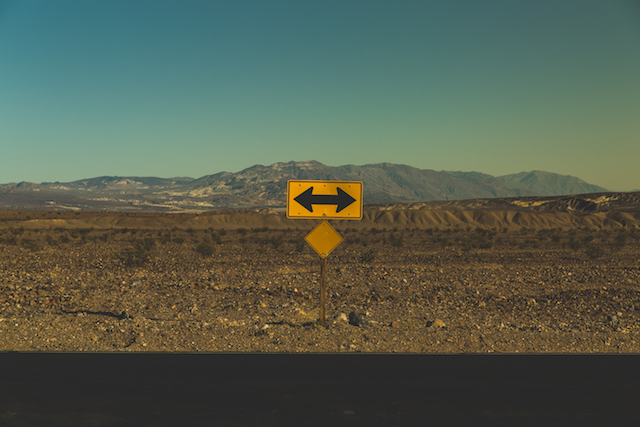
“Mistakes are always forgivable, if one has the courage to admit them.” ~ Bruce Lee
~
Sometimes everything we do seems wrong.
There are days when I make dozens of choices that could have been better.
Like today, for example, I woke up earlier than would allow me to have a clear head. Then, I began a conversation with a loved one about something I should have spoken of at a more opportune time. Next, I put salt in my coffee by mistake in place of sugar. After that, I decided to drive with a nail in my car tire and ended up with a flat. Last night, I left a situation instead of working it out. Just now, I sent a sensitive text to the wrong person.
These are the little “mistakes” that we make. The ones we will probably forget by tomorrow. The bigger ones—the ones that we remember for days, months, and often years—these are the ones that really matter. Usually because we think if we hadn’t made them we would have avoided pain for ourselves or for others. We allow these mistakes to continually drag us down.
This is a heartfelt response. We don’t want to create more suffering in this world. But the funny thing about mistakes is that they often reveal something very valuable—our humanness. They can also open us to a tenderness between each other that we hadn’t known. Mistakes reveal what we still wish to work on as well, which is extremely valuable information. We often won’t know what to avoid until we have done it, and learned it did not have a pleasant result.
The Buddhist take on mistakes is very different than our Western one. It is believed in many lineages of Buddhism that there is no such thing as a mistake.
Nope. No mistakes. We couldn’t make one if we tried. There’s just this moment. There is just what is happening now.
This is a teaching with the wisdom that every single second we start again.
It is not a get-out-of-jail-free card meaning we are no longer held accountable for our actions. No, rather this perspective actually means that every moment we have another chance to be our best. It also directs us to being kind. “No mistakes” means we forgive. This particular warmth in Buddhism is called Metta (or Maitri) and is seen as necessary compassion for a full life.
“No mistakes” is not some intangible spiritual woo-woo, meant to make us feel okay for things we ought to feel bad about. It is not a pat on the head. It is actual ancient wisdom meant to help us understand that our lives are workable in every moment, including when we make poor choices or experience big or small foibles.
This wisdom of “no mistakes” is meant to allow us to be braver.
If we were not afraid to make mistakes, what would we attempt? Would we be more daring with our lives, our careers, our loves, our desires, our dreams, and how much we offer the world? It seems we probably would—I know I would.
Mistakes are seen as learning in the Zen tradition of Buddhism. They are observed as the perfect time to be reminded of nowness. In fact, the state of “no mistakes” is often called “nowness.”
Since the only place where we can truly live our lives is in this moment, perhaps mistakes are actually a gift. Maybe they even arrive to wake us up. They startle us enough to bring us into the now.
As the Dalai Lama says, “A good friend who points out mistakes and imperfections and rebukes evil is to be respected as if he reveals the secret of some hidden treasure.” The Dalai Lama knows our mistakes are precious too—they teach us about what we really want and who we actually desire to be.
So, what if we look at our mistakes as signposts on the road to us knowing more about ourselves? What if they were the exact thing that could shape us into the people we aim to be and the lives we desire?
I think mistakes do this. I think when we make them, they are perfect jewels of insight. Whether they bring regret, frustration, laughter, anger, or sadness, they often open us up in a new way if we let them.
Just like a broken heart can be seen as bad if we don’t look deeper, our mistakes are here to crack us open too. Not in the sense of punishment so that we feel endless shame, but as a blessing to get us in touch with what is tender and honest about us.
Being human means that we are not perfect. “No mistakes” means that it is okay for us to be this way.
~
Author: Sarah Norrad
Image: Pablo Garcia Saldaña/Unsplash
Editor: Leah Sugerman








Read 3 comments and reply